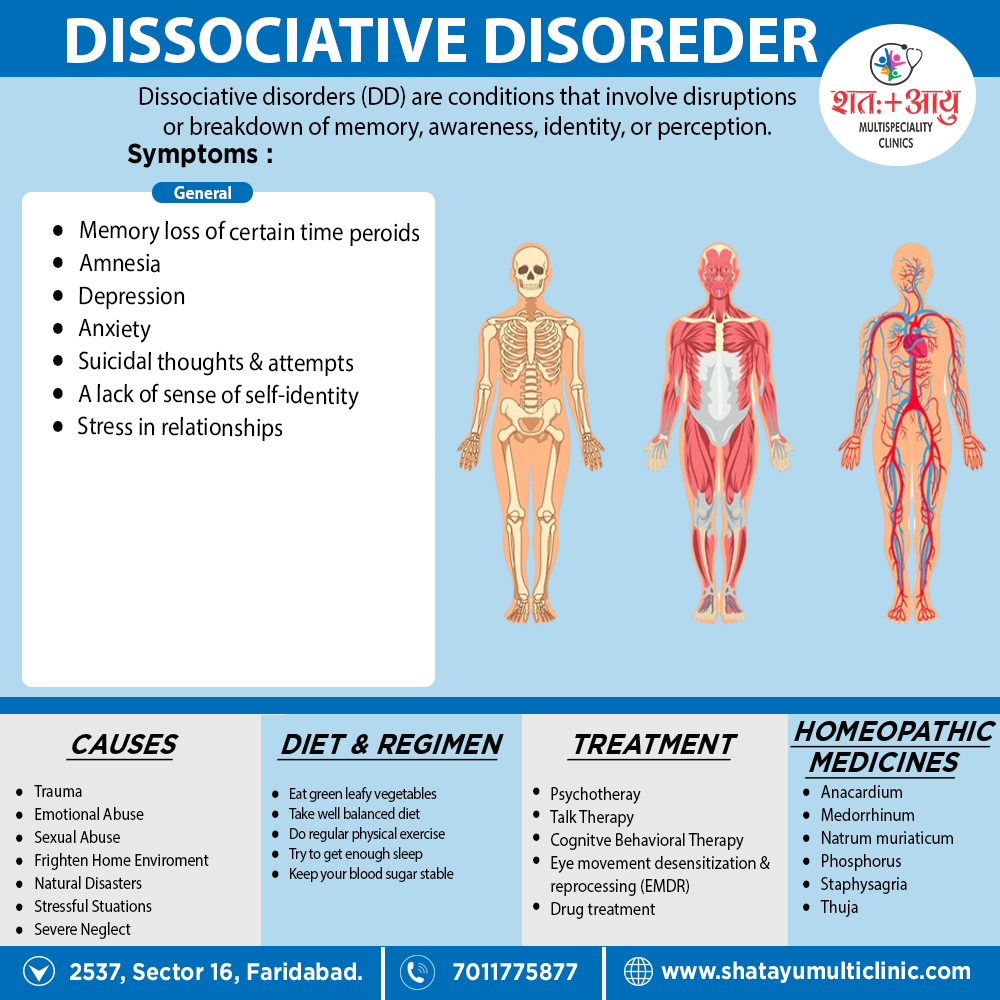Overview of Dissociative Disorder:
People with dissociative disorders use dissociation, a defense mechanism, pathologically also involuntarily.
In detail; Dissociative disorders are thought to primarily be caused by psychological trauma.

Dissociative disorder is condition that involve either disruptions or breakdowns of memory, awareness, identity, or perception.
People with dissociative disorders use dissociation, a defense mechanism, pathologically also involuntarily.
In detail; Dissociative disorders are thought to primarily be caused by psychological trauma.
Signs and symptoms of dissociative disorders i.e.:
Dissociative disorders are managed through various therapies including:
Homeopathic treatment should be directed to the vital force, which hopefully oversees and sends the healing effects of the remedy to the appropriate personality in appropriate intensity.
Overall energy increases as draining suffering of individual personalities is lessened.
Some of the homeopathic remedies for dissociative disorders are:
Dissociative disorder is condition that involve disruptions or breakdowns of memory, awareness, identity, or perception.
Reference: homoeopathic.in